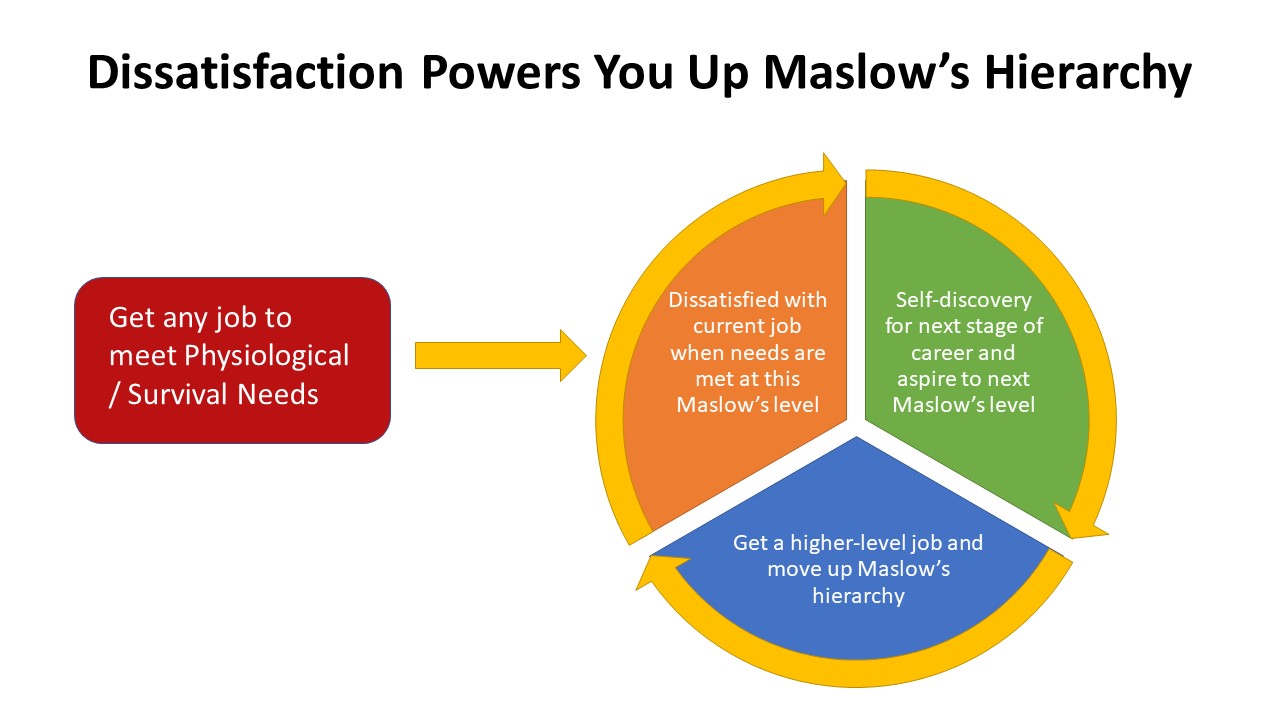All I need is a good job then a better job. Why bother with career planning? Isn’t it just a waste of time given that the world is volatile, uncertain, and always changing? The simple answer is without a goal, your career could meander along and opportunities could pass you by.
Having a career goal can motivate you. According to Louis Pasteur, the French microbiologist who invented pasteurization, “Chance favours the prepared mind.” You notice more opportunities and are prepared to take advantage of them when your mind is prepared with a goal. What opportunities are available during a pandemic that otherwise would not be there?
When you have a long-term career plan with milestones along the way, sometimes you can skip a step and reach your long-term goal faster. This is because we tend to overestimate what we can do in a year and underestimate we can do in ten. Don’t take my word for it. Travel back memory lane for ten years. What were you doing then? Did you ever imagine you would be where you are today?
Read on to learn how to use Maslow’s hierarchy of needs to plan your career.
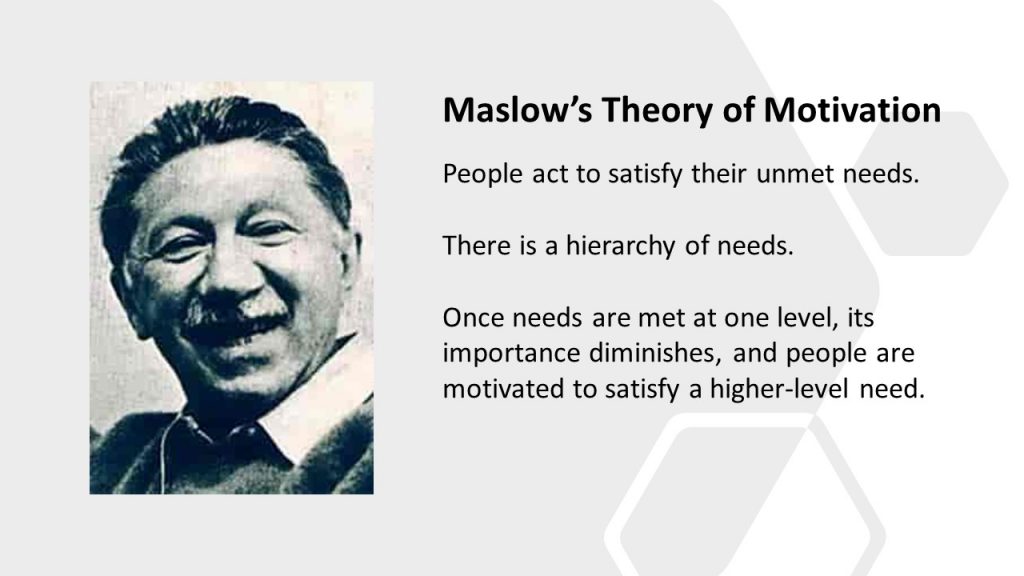
Maslow’s hierarchy of needs is based on his Theory of Motivation where:
- We act to satisfy our unmet needs
- There is a hierarchy of needs
- Once needs are met at one level, its importance diminishes, and we strive to satisfy a higher-level need.
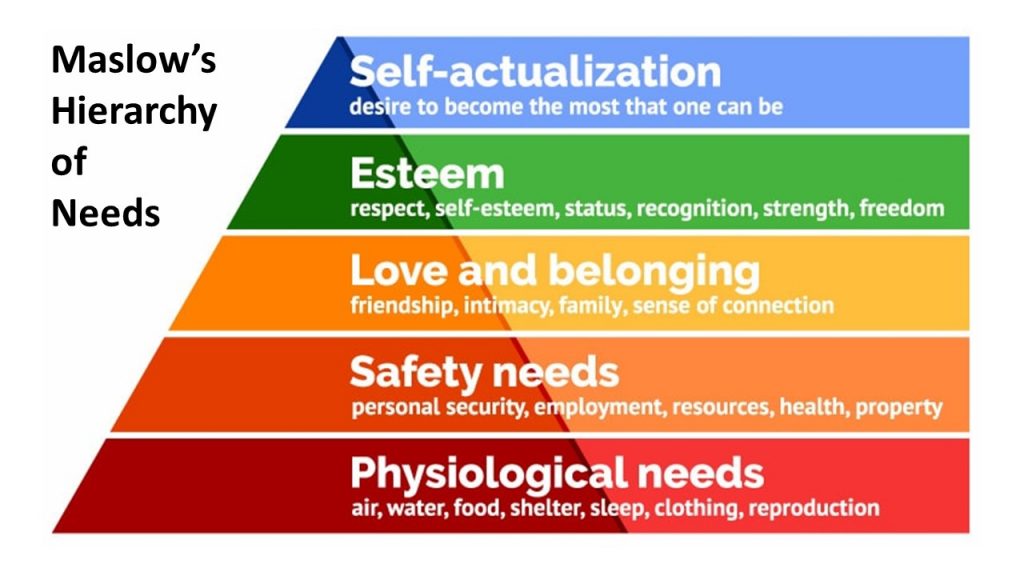
Maslow’s Hierarchy of Needs
- At the very foundation, we are living beings and have basic survival needs for food, shelter, and clothing. These are physiological needs.
- Once our survival is needs have been met, we want to be secure. We are concerned about protecting our health, property, and personal security. Maslow calls these our safety needs.
- Then we move up to desiring family and friends, to feel connected, and be intimate with someone. These satisfies our need for love and belonging. At this level, we want to be part of a group.
- Once we are part of a group, we want to be respected by that group. We want to be recognized, have status, and grow our self-esteem. We want to rise above the group to meet our esteem needs.
- Then finally, we reach the top of Maslow’s hierarchy of needs when we pursue self-actualization, to be all that we can be.
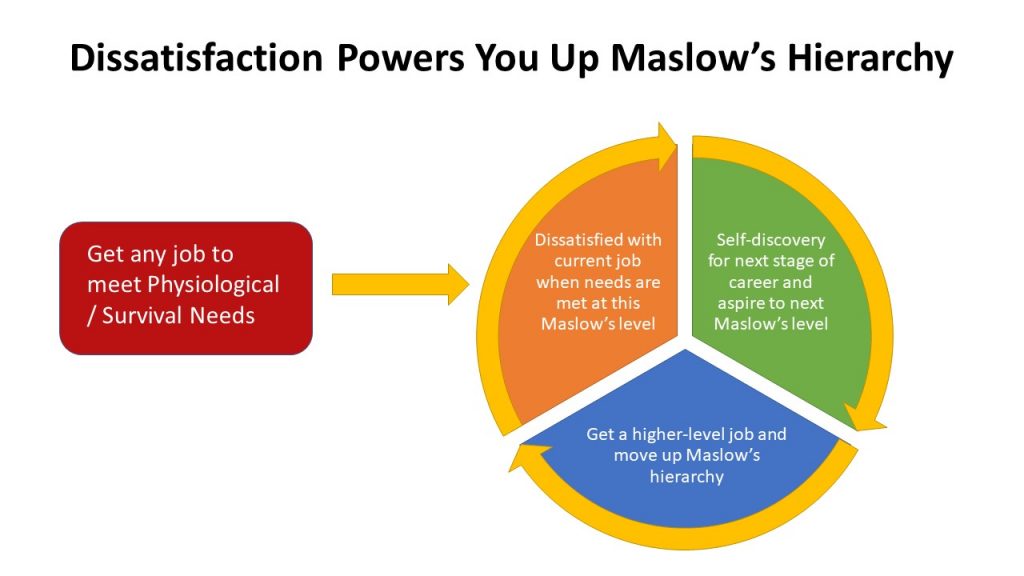
Career Planning using Maslow’s Hierarchy
We need to survive and if we don’t have a job, savings or any other source of income, we become desperate and will take any job to meet our survival needs. This could be a part-time, on call job at minimum wage. Once we meet our survival needs, we eventually become dissatisfied with this survival job and want to get a full-time job with a better pay. We aspire to move up to the next level.
We repeat this cycle of:
- Get a higher-level job and move up Maslow’s hierarchy
- After some time, we feel dissatisfied when needs are met at this Maslow’s level
- Then we start the process of self-reflection and renewed discovery of our values, strengths, and passions. We aspire to move to the next Maslow’s level. New passions will arise to motivate you to the next level.
This cycle could take a few months to a decade. It tends to go faster at the lower levels and slower at the higher levels. If you have a survival job, there is very strong motivation to quickly get a permanent job. However, if you are a recognized senior professional doing a job you love, you could stay for 10 years before wanting to move to a leadership position.
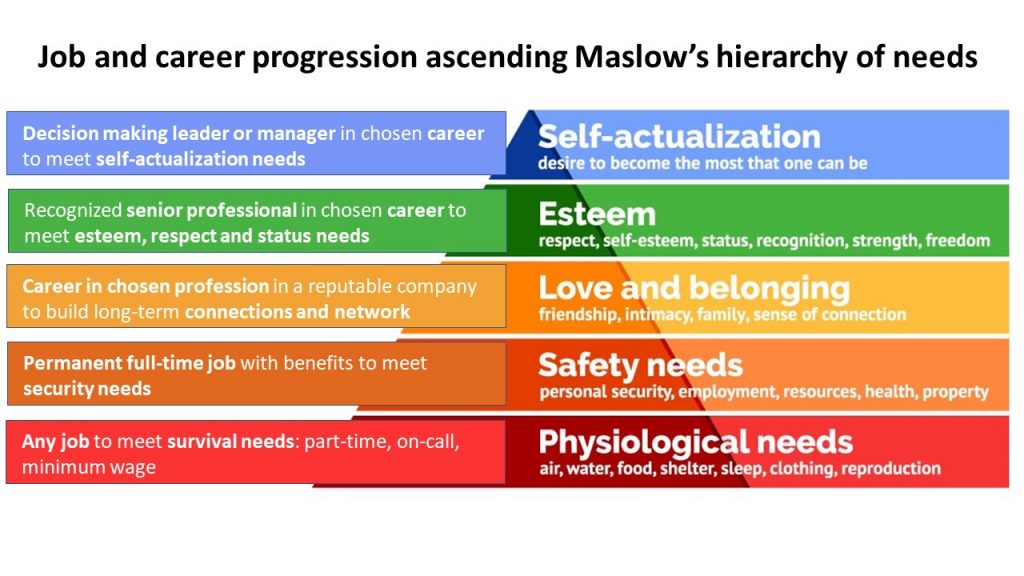
Here I have roughly mapped out the types of jobs and the associated Maslow’s hierarchy of needs to help with your career planning:
- To meet physiological needs, we take any job for the sake of survival: part-time, on-call, minimum wage jobs. Many students and immigrants start out here.
- To meet safety and security needs, we then strive for permanent full-time jobs with benefits (health, retirement, vacation, training) and may prefer to join a union for job security. You can think of this as securing our long-term survival.
- To meet our need for love and belonging, we seek to build connections and network. Beyond a secure full-time job, we want to have a career track with progression to senior roles. We may start out as a junior in this profession but with time, we can see the opportunities for promotion to senior roles.
- To meet our esteem needs for respect, status, and recognition, we aspire for senior roles. So we work hard to prove ourselves and earn the respect of our peers and the recognition of those above us.
- Finally, we want to be self-actualized. We want more responsibilities and the ability to make decisions as a leader or manager. This could mean moving from a job to starting your own business or venture. A great company tends to have many self-actualized employees who give their very best.
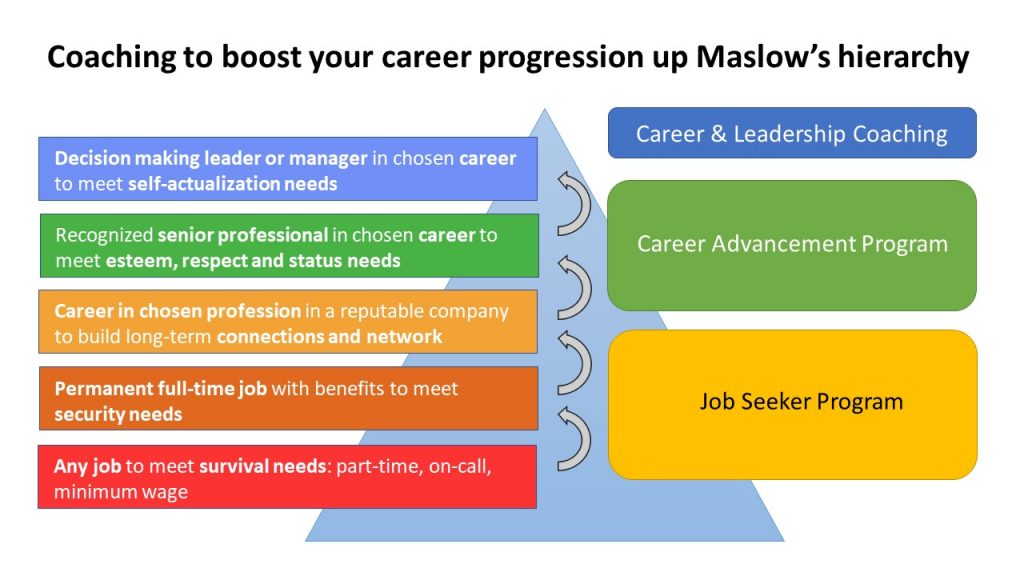
The distance from the moment you start to feel dissatisfied at your current job to the point when you start the job at the next level could be a long journey. It could take a long time. Coaching can help you move up faster and avoid costly mistakes that slow you down. The Job Seeker Program helps you get into a career track. The Career Advancement Program accelerates your progress to a senior position, leadership and management roles. Finally, ongoing career and leadership coaching is to establish you in those senior leadership positions.
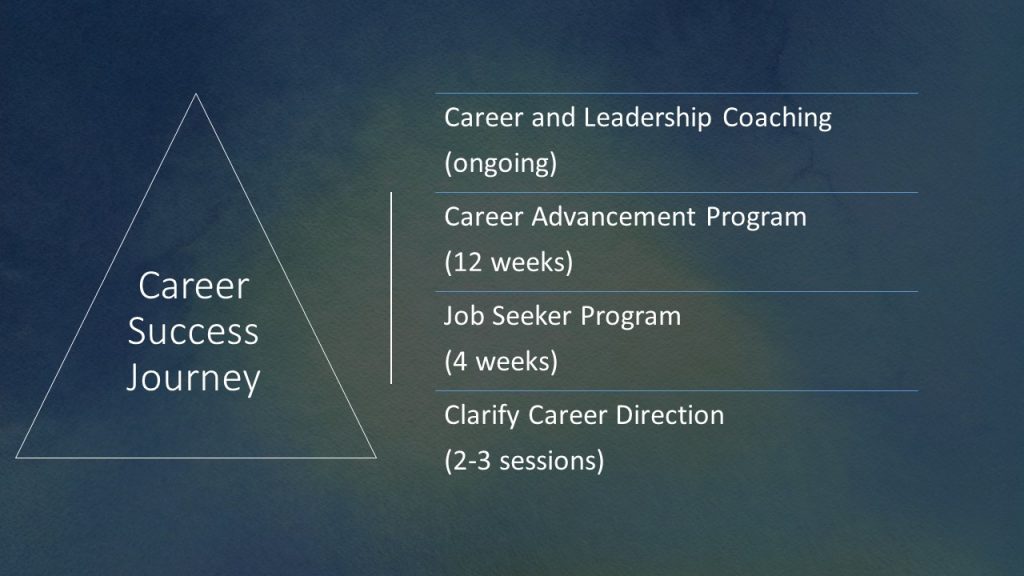
Career Planning: Where are you on your Career Success Journey?
If you are at a place where you are unsure of your career direction, you can start with a few coaching sessions to clarify your career roadmap. Then you can join either the Job Seeker Program or the Career Advancement Program. If you are already in a senior leadership position, all you may want in ongoing coaching to establish yourself in that role. If you are ready to take the next step in your career success journey, I invite you assess your career.
Sources
- https://opentextbc.ca/businessopenstax/chapter/maslows-hierarchy-of-needs/
- https://www.indeed.com/career-advice/career-development/maslows-hierarchy-of-needs
- https://www.simplypsychology.org/maslow.html
- https://lifeedited.com/moving-up-and-beyond-maslows-pyramid/
- https://www.livecareer.com/resources/careers/planning/career-planning-tips
- https://www.forbes.com/sites/ashleystahl/2018/08/29/3-steps-to-develop-your-career-plan/?sh=1dda7834910f

